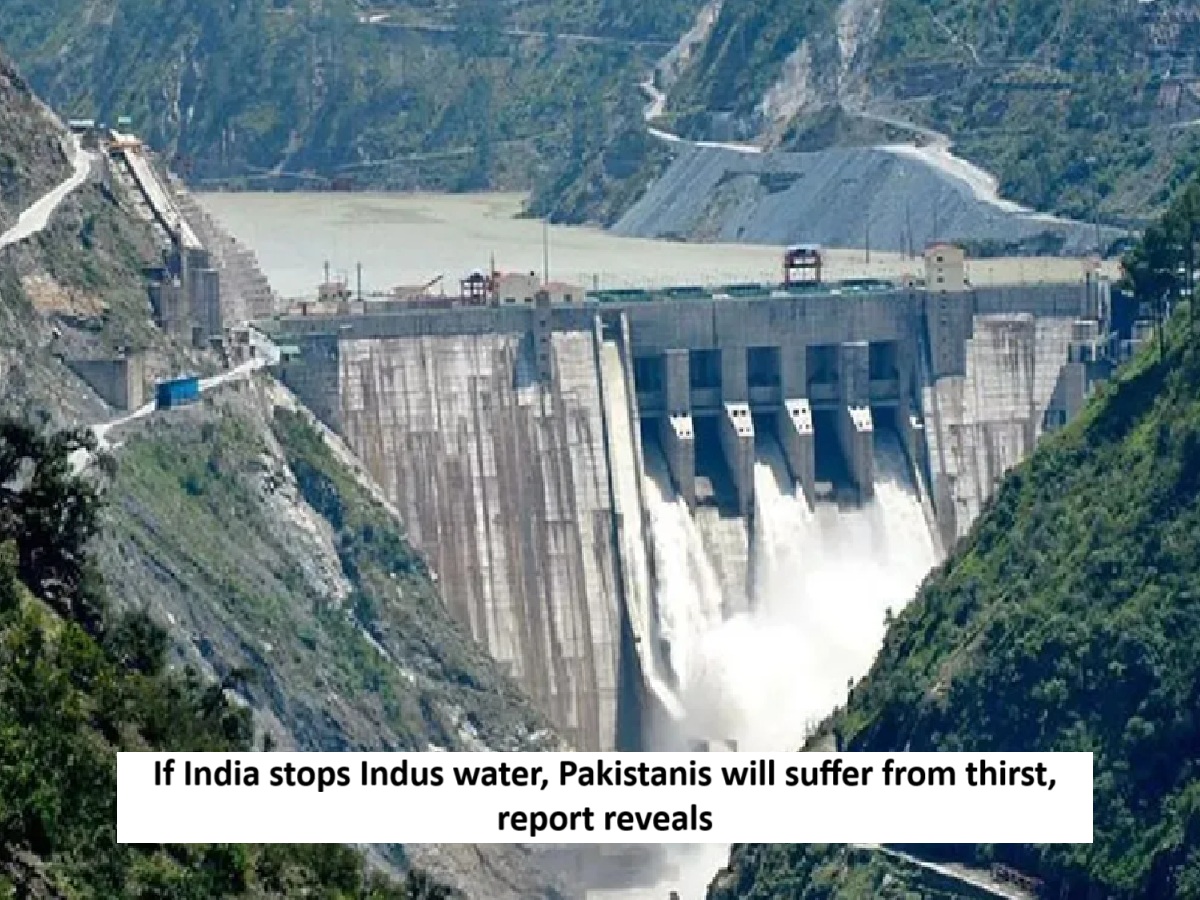
News Topical, Digital Desk : According to the IEP's Ecological Threats Report 2025, agriculture in Pakistan's regions dependent on the Indus River Basin is at risk. Even minor changes in India's dam operations could exacerbate Pakistan's water crisis, as Pakistan's dams can only store water for 30 days. The situation has worsened after India suspended the Indus Water Treaty, leaving Pakistan's agriculture vulnerable.
According to a report in Dawn, India's stance on the Indus Water Treaty is a major concern for Pakistan. Even small steps by India would significantly impact irrigation in Pakistan. Therefore, a major and decisive move by India could cause significant damage to Pakistan.
Pakistan, 80% of whose agriculture depends on water from the Indus basin, faces serious threats of water shortages because India has the ability to divert the flow of the Indus River within its technical capacity, according to a report by the Institute for Economics and Peace (IEP), a Sydney-based think tank.
India is not bound by water sharing.
In fact, this IEP report comes just months after India suspended the 1960 Indus Water Treaty (IWT) following the Pahalgam attack. Due to the suspension of the treaty, India is not currently bound by its water-sharing obligations under the IWT. Under the 1960 agreement, India agreed to share the waters of the western rivers, the Indus, Jhelum, and Chenab, with Pakistan, while retaining control over the eastern rivers, including the Beas, Ravi, and Sutlej, for its own use. However, India cannot completely block or divert water flow.
The IEP report also claims that if India were to block or reduce the flow of the Indus River, Pakistan's densely populated plains would face severe water shortages, especially during the winter and dry seasons.
Indus Water Treaty Agreement
It is worth noting that the Indus Water Treaty (IWT) was signed between India and Pakistan in 1960. This treaty regulates the sharing of water from six rivers flowing through India and Pakistan. Following the terrorist attack in Pahalgam in April, India announced its suspension of the Indus Water Treaty. Currently, India is not bound by the terms of water sharing since this suspension.
Pakistan can store water for only 30 days
According to the report, Pakistan has the capacity to store only 30 days of water. Therefore, it is at risk of seasonal water shortages. If India were to interrupt or alter the flow of water, even for a short period, it could suffer serious losses. Dams on India's western rivers cannot hold large amounts of water. However, India has the authority to open and close dam gates and schedule water releases, which could impact Pakistan.
--Advertisement--

 Share
Share



